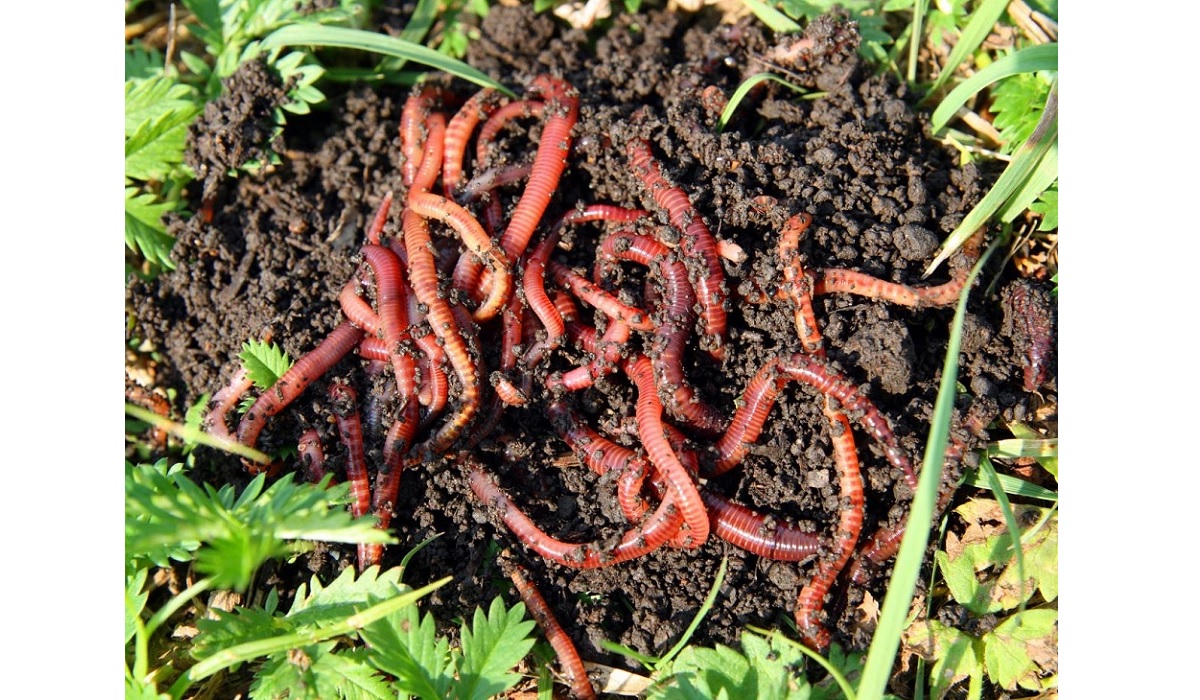Vermicomposting is a popular way of getting rid of kitchen scraps and proponents of the form of composting make all types of claims. Does vermicomposting actually work? Can it produce excellent compost when compared to traditional bin composting or Bokashi? What do the worms actually produce and exactly how does it compare to traditional compost?
This post will have a close look at vermicomposting and compare it to bin composting. Vermicomposting” can be defined as the biological breakdown (decomposition) of organic wastes, via the joint action of (specialized) earthworms and microorganisms. It is a term that can be used interchangeably with worm composting. Vermicompost is the materiel left out after worms eat and digest kitchen scraps and other types of organic and natural matter. It really is aged worm poop, also referred to as worm castings. This type of composting is a blend of digestion by the worms and a decomposition process that takes place after the material exits the worm. Worm poop sits for a period of time where bacteria and other microbes continue the decomposition process. The effect is a black humus-like substance that, superficially at least, resembles the materials produced by bin composting.
There are of course many recipes, however the basic formula for the home owner goes something such as this. Take a plastic bin, add some shredded paper, food scraps and the right type of worms. Allow the worms do their thing as you continue to add more food scraps. Over many months the organic and natural matter is changed into vermicompost. This technique is well described in Composting With Worms. Although this post will focus more on home composting which is usually done in a tiny bin, it ought to be noted that vermicomposting may also be done on a larger scale. Visit this website to get more insight Worm Composter
Claims That Are True
- Easily done inside the home
- Clean, odor free – true only if the process is well managed
- Added to soil it does increase the organic content and adds nutrients
- Adds microbes to the soil – this holds true, but are there any benefits to adding them?
- Improves soil porosity – true for any added organic and natural matter
- Improves moisture holding capacity of soil – true for just about any added organic and natural matter
- Provides slow release nutrients – true for just about any kind of compost
- Will not burn like synthetic fertilizers – true, but then synthetic fertilizers only shed plants if used incorrectly
Vermicomposting – What Happens Inside the Worm?
Worms eat soil and organic and natural matter which travels down an extended digestive tube that contains several key sections. The esophagus adds calcium carbonate for the worm to rid itself of excess calcium. The meals then moves on through the crop and into the gizzard. The gizzard uses swallowed stones to mash food into small particles. Enzymes are put into help digestion. The material then moves in to the intestine where fluids are added to further digest the foodstuff. Similar to our own intestine, it absorbs nutrients that are needed by the worm.
This all sounds quite normal for an animal digestion system but you can find an added key ingredient, microbes. The worm controls moisture and pH levels to favor the growth of microbial populations. These microbes play a significant role in the digestion of organic matter.
The whole digestive system is not very efficient in support of 5-10 percent of the ingested food is absorbed by the worm. The others is excreted as mucus coated particles called vermicasts or worm castings. The worm casts contain undigested plant material, nutrients, soil and a huge amount of microbes. The microbial activity in worm casts is ten to twenty times higher than it is soil (ref 1) and other forms of organic matter.
Vermicomposting – What Happens Beyond Your Worm?
The worm is not really doing much composting. It can some digestion, but its main contribution to the procedure is the fact that it breaks organic and natural matter into small pieces and mixes it with microbes. A spot that is not emphasized enough is the fact that much of the composting process occurs after the casts exit the worm. This external processing may in reality be the most significant area of the composting process.
In a commercial setting, which is maximized for productivity, usable vermicompost is ready in less than 6 weeks. In worm bins obtaining minimal management (most home systems), vermicompost is ready in four to six 6 months. It is far from quite clear how the term usable is defined.
